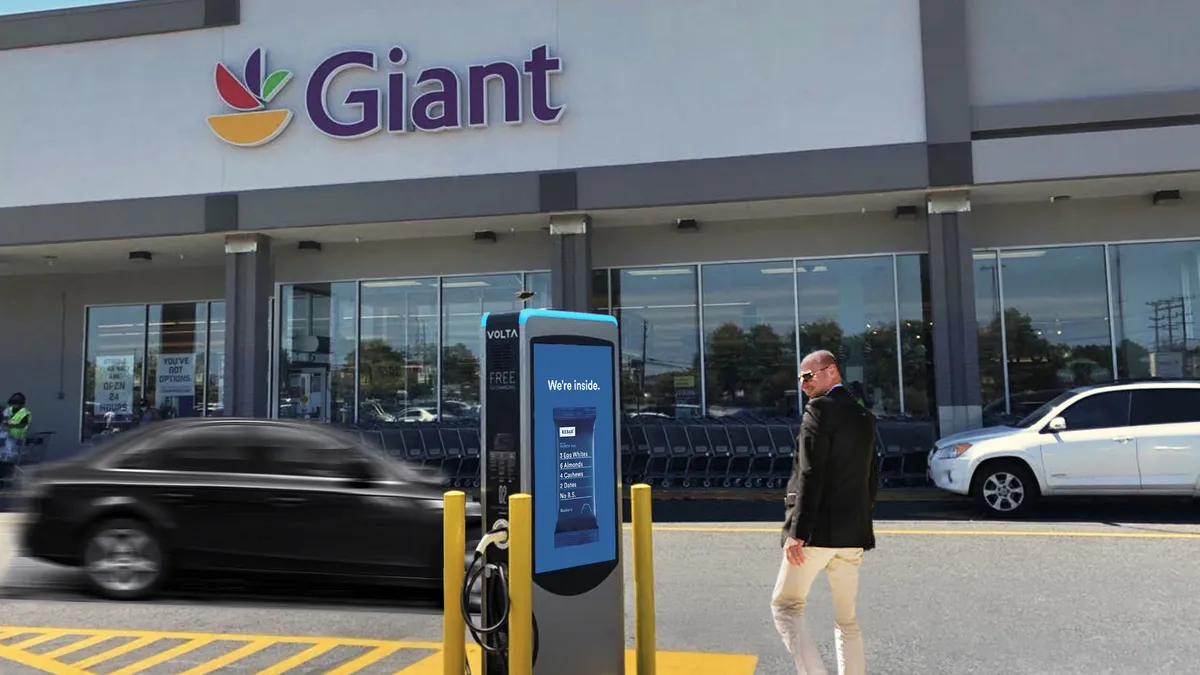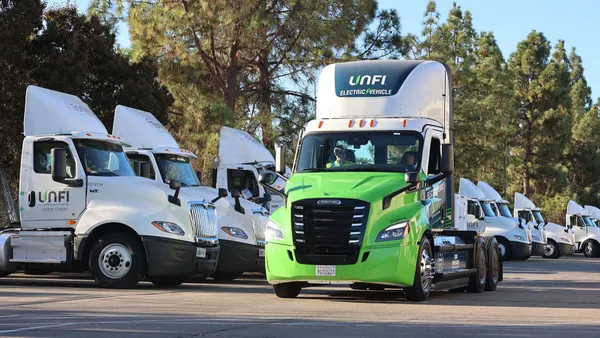Dive Brief:
- Giant Food plans to add charging stations for electric vehicles at many of its supermarkets across its mid-Atlantic service area, according to a press release. The stations will be available for customers to use while shopping for no charge.
- The retailer plans to place two charging stations at each store it elects to equip with the facilities, with 60 stations slated to be in service by the end of 2020 and a total of 200 due to be up and running by mid-2021.
- The grocer is working with Volta, an operator of advertising-driven electric-vehicle charging facilities, to install the charging stations. Each station will have a pair of double-sided, 55-inch video screens that will carry promotional messages for the supermarket chain.
Dive Insight:
Giant’s foray into electric vehicle charging is part of a global trend that has seen retailers add facilities for customers to plug in their vehicles while they shop.
Charging stations located in retail parking lots can draw customers whose vehicles need electricity to run, and could encourage them to stay in stores longer — and spend more while they are there. In addition, interest by retailers represents a promising way to boost the number of locations where drivers of electric vehicles are able to find power, according to utility industry experts.
Mom’s Organic Market, which operates a chain of organic food stores on the East Coast nearby many Giant Food locations, already offers electric vehicle charging stations outside its stores. In the United Kingdom, automaker Volkswagen and Pod Point, a London-based charging station operator, are working with grocer Tesco to add facilities to charge electric vehicles outside hundreds of stores.
Electric vehicles account for a relatively small portion of the nation’s cars, but their numbers are the rise. Tesla, which makes two of the bestselling electric vehicles on the market, according to Forbes, reported in January that it delivered a record 367,500 vehicles in 2019, a 50% increase from 2018. However, only about 3% of new vehicle owners want a vehicle that runs solely on electric power, according to a 2019 study conducted by consultancy AutoPacific.












